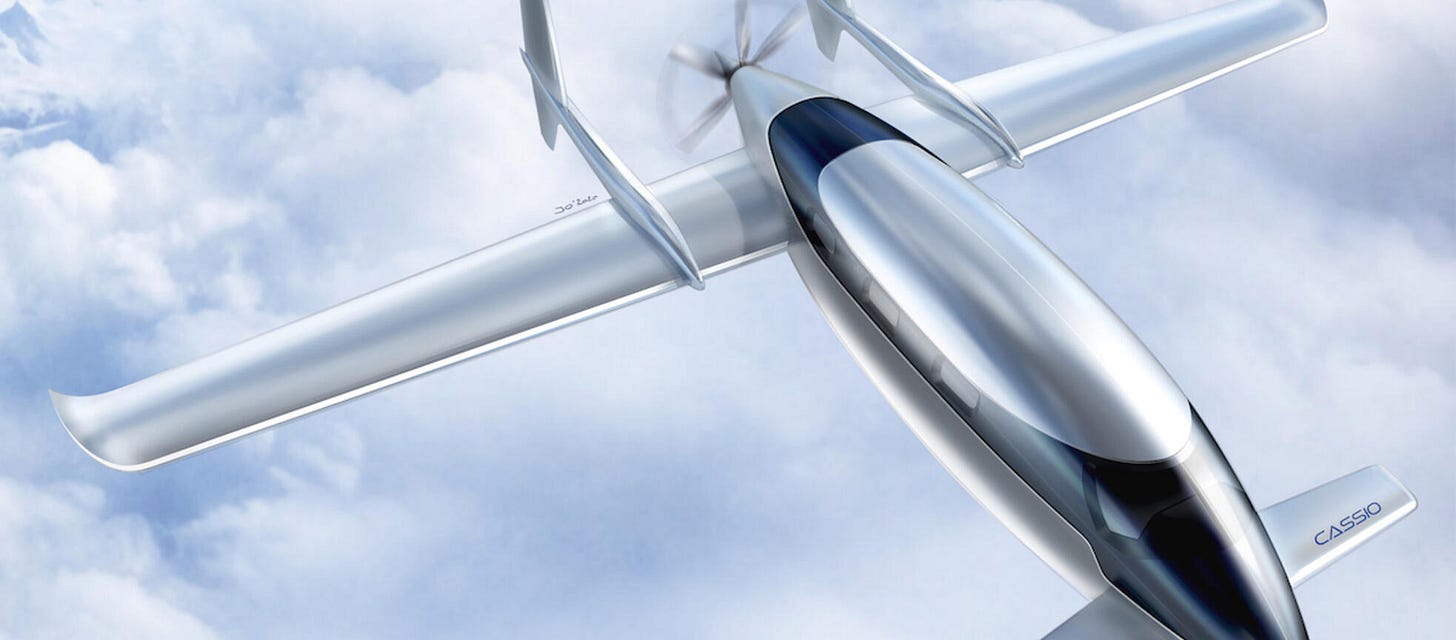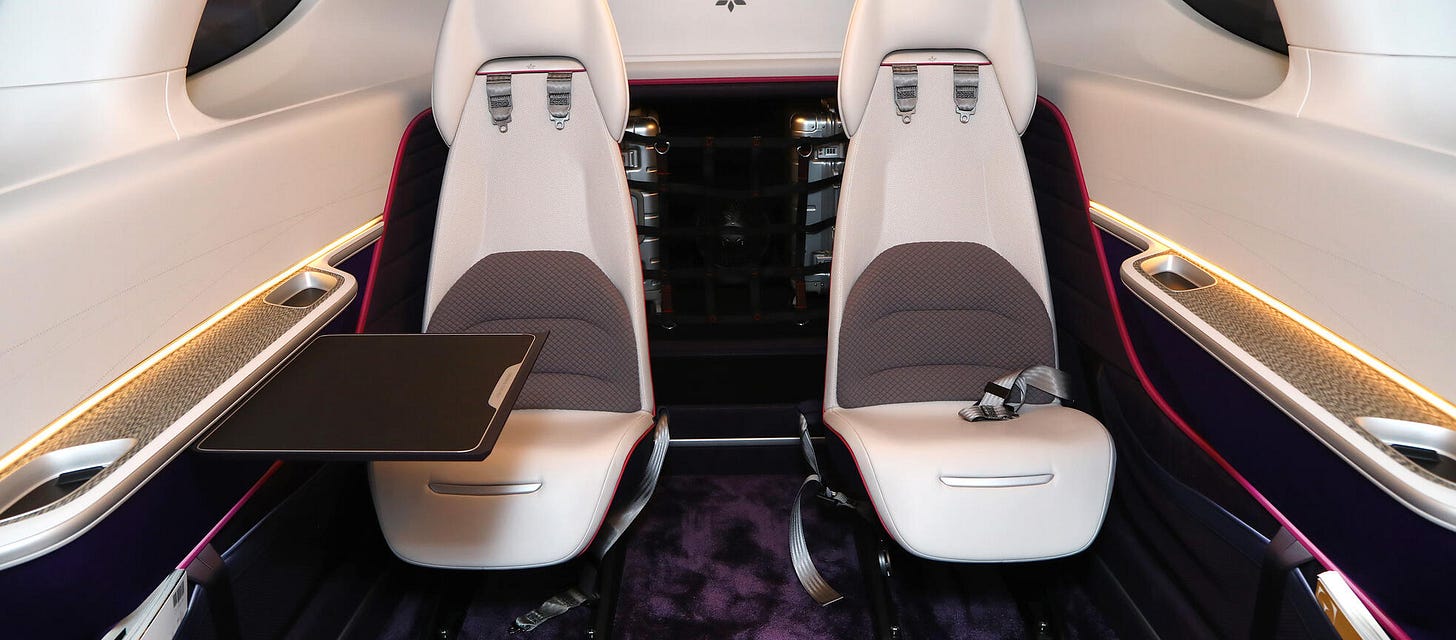#Sustainability20: The Airline CEO Who Hates Offsets & Other Stories In Aviation
Weekly roundup - 26/05/2023
Industry Updates
Federal Aviation Administration (FAA) acting chief Billy Nolen is expected to take a position with electric air taxi firm Archer Aviation after he leaves the agency, sources told Reuters.
For more on Archer, listen to our podcast episode with CEO Adam Goldstein:
The Clean Fuels & Products ShotTM supports the national goal of achieving net-zero emissions by 2050 by developing the sustainable feedstocks and conversion technologies necessary to produce crucial fuels, materials, and carbon-based products that are better for the environment than current petroleum-derived components.
It aims to meet projected 2050 net-zero emissions demands for 100% of aviation fuel; 50% of maritime, rail, and off-road fuel; and 50% of carbon-based chemicals by using sustainable carbon resources.
United Airlines CEO Scott Kirby on carbon offsets: “The majority of them are fraud. They’re planting trees or not cutting down trees, but they’re trees that were going to either be planted anyway or trees that were never going to be cut down. Even if they weren’t a fraud, they are not scalable.”
Also, listen to more from Scott Kirby on our podcast.
Infrastructure and operational efficiencies
Cascade quantifies the impact of various sustainability solutions for reducing aviation’s carbon emissions, including sustainable aviation fuel (SAF), fleet renewal, operational efficiency, and renewable energy sources.
The tool examines the entire life cycle of alternate energy sources and highlights the importance of minimising energy and emissions associated with fuel production, distribution, and storage.
Qatar Airways Chief Executive Akbar Al Baker said the airline’s chances of sticking to its environmental target are low.
Explaining his reasons for the firm being unlikely to reach its goal, he added: “Everybody’s talking about it but let us be realistic – there is not enough production of sustainable aviation fuel (SAF).”
France has banned domestic short-haul flights where train alternatives exist, in a bid to cut carbon emissions.
The law came into force two years after lawmakers had voted to end routes where the same journey could be made by train in under two-and-a-half hours.
The ban all but rules out air travel between Paris and cities including Nantes, Lyon and Bordeaux, while connecting flights are unaffected. Critics have described the latest measures as "symbolic bans".
Our Head of Sustainability, Dirk Singer, wrote about the ban recently. Read him for more context.
A new 25% discount off all runway charges will be available to all airlines that operate the most environmentally friendly aircraft at all times of the day.
The expected multi-million euro discounts will further incentivise sustainable airport operations at Dublin Airport and are expected to go live within the next six months.
Sustainable Aviation Fuel (SAF)
Boeing says the consensus solution is drastically scaling up the production of sustainable aviation fuel (SAF), which is said to be sustainably derived and to have a smaller carbon footprint than conventional jet fuel.
Though most airlines’ decarbonisation strategies rely heavily on SAF, significant challenges remain – including a lack of available feedstock and land-use issues, which involve concern that land used to grow food crops will be converted to grow SAF crops, driving up food prices.
Listen to a detailed overview of Boeing’s sustainability strategy on our podcast
A regulation that will hold oil wholesalers accountable for meeting the threshold is to take effect in 2030. The regulation will mandate that 10% of aviation fuel for international flights sold by oil wholesalers be SAF.
METI also will consider penalties for wholesalers that do not meet the threshold. In addition, Japanese airlines that fly internationally will be required to state that 10% of the fuel they use for such flights will be SAF.
In line with the European Green Deal commitment to help partner countries decarbonise, the project will support selected countries with €4 million. The funding will go towards increasing SAF production, feasibility studies and assistance with the certification of these fuels.
Implemented by ICAO and the European Union Aviation Safety Agency (EASA), the project involves 12 partner states for now: Cameroon, Egypt, Equatorial Guinea, Ethiopia, Gabon, India, Kenya, Mauritania, Mozambique, Rwanda, Senegal and South Africa.
With greater volumes of SAF from Neste, World Fuel is increasing the number of European airports they can supply with SAF from 13 to over 40.
This collaboration between the two global leaders in the aviation industry also paves the way for expanding the accessibility of SAF to more than 100 airport locations presently in World Fuel’s European network.
New technology: Electric and Hydrogen
Kawasaki Motors has become a strategic investor in VoltAero, joining Series B funding for the development, production, and certification of VoltAero’s Cassio electric-hybrid aircraft family.
The Series B round marks the third funding phase for VoltAero, positioning it for the industrialization of its Cassio 330, the first member of Cassio’s electric-hybrid aircraft family. It builds on an earlier €32 million investment by Italy's TESI group in November 2022.
The study published by the NGO Transport & Environment on Monday, found that the cost of developing the hydrogen supply chain in Europe would be €299bn between 2025 and 2050, largely made up of the cost of green hydrogen production, liquefaction and distribution.
The high cost would make hydrogen planes 8 per cent more expensive than jet-fuelled aircraft in 2035 unless kerosene was taxed, it estimated.
Following on from the previous story, hydrogen jets could be cheaper to run than fossil fuel planes from 2035 provided kerosene is taxed adequately, a new study shows.
In 2035, running planes on hydrogen could be 8% more expensive than using kerosene. But with a tax on fossil jet fuel and a price on carbon, hydrogen planes could become 2% cheaper to operate than their kerosene counterparts.
These pricing measures are key to the deployment of green technologies like hydrogen planes.
Autonomous freight aircraft developer Natilus has announced it will offer ZeroAvia’s ZA600 hydrogen-electric engine as a propulsion option on its blended wing body (BWB) cargo plane.
The two aviation companies have formed a strategic partnership to jointly develop an unmanned aerial vehicle (UAV) flown entirely by hydrogen-electric propulsion.
Dutch aircraft manufacturer Fokker aspires to produce an adaptable and versatile next-generation aircraft that will operate on a mixture of sustainable aviation fuel (SAF) and kerosene, with the aircraft also reflecting eco-friendly designs, sustainable manufacturing, natural light, and reduced noise pollution.
Fokker will first convert its popular Fokker 100 model, one of its most popular and light current designs.
While the aviation industry obsesses over vertical take-offs and landings, in Switzerland a father and son duo have been planning their own aviation revolution.
George Alafinov, CEO of hydro aircraft maker Jekta, and his father have 20 years’ worth of experience in the seaplane industry. Since 2017, the family-run company has been putting all its efforts into a 19-seater electric-powered seaplane which would be the largest in existence.
A full-scale mockup of the Lilium Jet was unveiled this week in Geneva. The German manufacturer exhibited an example of the Pioneer Edition, which features a club-four seating configuration that gives more space than the standard six-seater Shuttle version.
Lilium plans to build just 50 Pioneer Edition aircraft. This version of the all-electric Lilium Jet, which features 30 ducted fans in its canard and wings, is expected to be delivered by early 2026.
Guardian Agriculture, the leading developer of Electric Vertical Take-Off and Landing (eVTOL) systems for commercial-scale sustainable farming has received approval from the U.S. Federal Aviation Administration (FAA) to operate its aircraft nationwide. FAA approval makes Guardian Agriculture the first commercially authorized eVTOL in the U.S.
Multiple factors drove Vertical Aerospace’s decision earlier this month to push back the target date to certify its VX-4 four-passenger eVTOL aircraft to the end of 2026.
But according to the UK company’s chief technology officer, Michael Cervenka, diminishing cash reserves wasn’t one of them, even though it is now launching a new round of fundraising to help cover its needs from late 2024 until when it begins series production and initial deliveries to operators.








